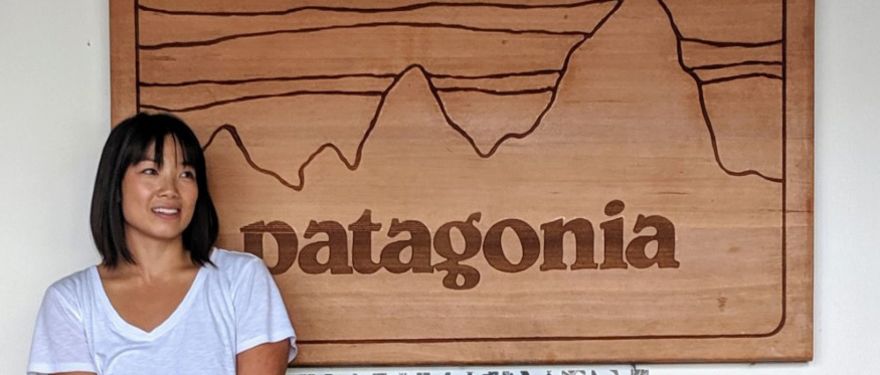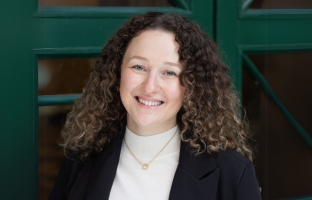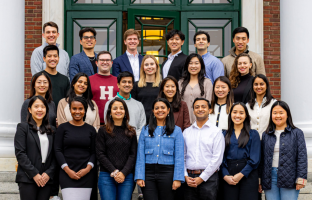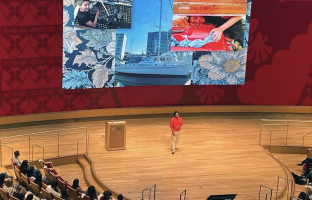Before arriving to Harvard Business School, I had built my career around bringing crazy ideas to life at Google in a variety of operations, strategy, and design roles. I was surrounded by incredible people, learned from world class leaders, and worked on sticky business problems but had reached a point in my career where it was time to pivot. With the encouragement of dear friends and mentors, I stepped away from Silicon Valley and enrolled at HBS to refine my technical business skills (woo liberal arts degree!) and more importantly, rediscover what got me stoked each day. After settling onto campus, the biggest outstanding question I had was how I would spend my summer. After several years of professional overdrive, I had been contemplating the idea of living out of a van, camping outside national parks, and visiting loved ones across the States. There were brief attempts to interview for traditional internships but nothing felt...right.
In search of inspiration and clarity, I spent time outside the classroom reading and listening to stories -- autobiographies, podcasts, novels, documentaries, cases. I was particularly drawn to the stories of the naysayers, debaters, and unconventional thinkers. One of the texts was from Patagonia’s founder, Yvon Chouinard. I was enamored by his honesty on business, particularly his stance on the role businesses had in addressing environmental issues. In the opening chapter of his book, Let My People Go Surfing, Yvon states:
“Patagonia and its two thousand employees have the means and the will to prove to the rest of the business world that doing the right thing makes for a good and profitable business.”
There was meaningful work to be a part of at Patagonia. In discovering these stories, I began to understand more of my own. As an avid environmentalist and amateur climber, I had admired Patagonia as a loyal customer. The aches to be outdoors and to live more simply were signs of the shifts I was envisioning for my personal and professional life. I had to find a way to Ventura for the summer.
Concurrently, I had been chatting with my career coach who recognized my potential. She listened to my yearnings and reflections throughout the semester and reminded me of how deliberate I had been in crafting my summer plans. She knew former colleagues at Patagonia and saw how I could thrive in the culture. I applied through Patagonia’s online careers page. The application deadline had passed several weeks prior (oops), but I submitted my application anyways since the posting remained open. Through a series of serendipitous events, connections, and timing, I was hired as one of the 13 lucky interns.
This summer, I am working on the Insights and Innovation team, whose objective is to deepen the understanding of the Patagonia customer, drive business decisions using feedback and insights, and lead innovative approaches that enable Patagonia to more effectively engage and inspire the outdoors community. My role resembles closely to a UX researcher or designer. Days are a mix of talking with customers, analyzing research, and rethinking how Patagonia customers experience the brand. I partner closely with creative, marketing, and e-commerce teams to help answer these big open questions. It has been the perfect blend of the design work I’ve always gravitated towards alongside my operations-focused mind and research background. It has been a dreamy summer on the coast filling my time outside the office with climbing trips, beachside bike rides, and attempts to surf.
There is a deep activist culture here at the company -- we’re fighting the good fight. This past year Patagonia changed its mission to: “we’re in business to save our home planet.” The company is constantly working to improve its supply chain and reduce the environmental impact from its materials and operations. In fact, Patagonia has committed to using renewable electricity for stores, offices, and headquarters by 2020. By 2025, the company has committed to using only renewable or recycled materials in the products. It has been making Fair Trade apparel since 2014 and today has more Fair Trade styles than any other apparel brand. While Patagonia has been using 100% organic cotton in its products since 1996, it is now part of a pilot program to grow regenerative organic certified cotton and mango for its apparel and food. Patagonia has had a tremendous impact on the apparel and outdoor industry by leading coalitions against harmful practices and calling on businesses to join 1% for the planet, the fair trade movement and to become a B Corp. I am immensely grateful to have had the opportunity to be at the forefront of innovation and much needed change for the apparel industry.
I envisioned many scenarios for my summer and often questioned whether or not I would end up picking the ‘right’ thing. But deciding what is right for me can be a selfish way of thinking about where and how you’ll make a difference in the world. For me, the difference is deeply tied to surrounding myself with kind people, creating more good in the world, and protecting our wild and public lands. So much of my experience at Patagonia has shown me how to advocate for change, to live with authenticity, and to build beautiful products customers can appreciate without causing unnecessary harm.






.png&w=80&h=80)
